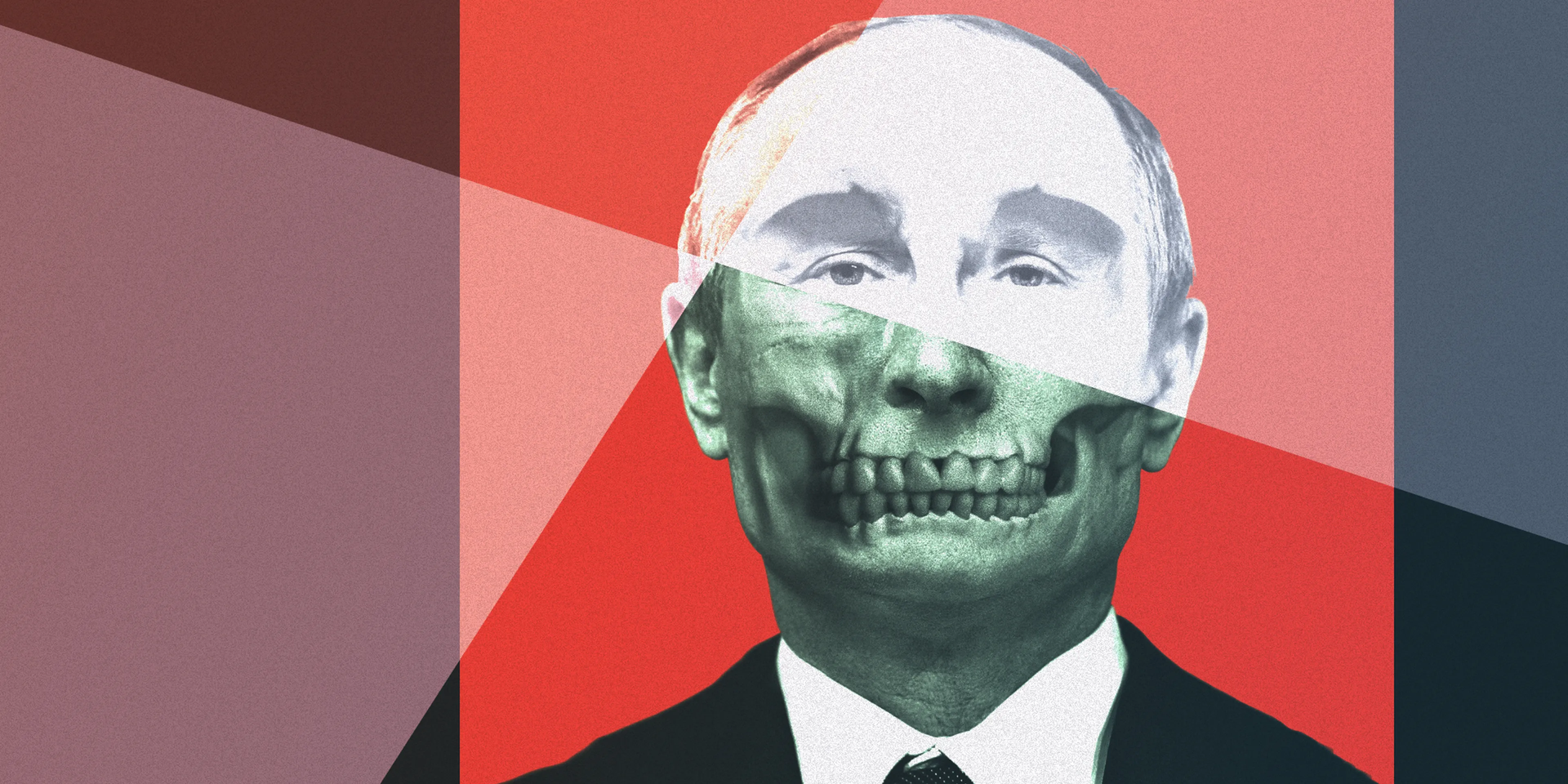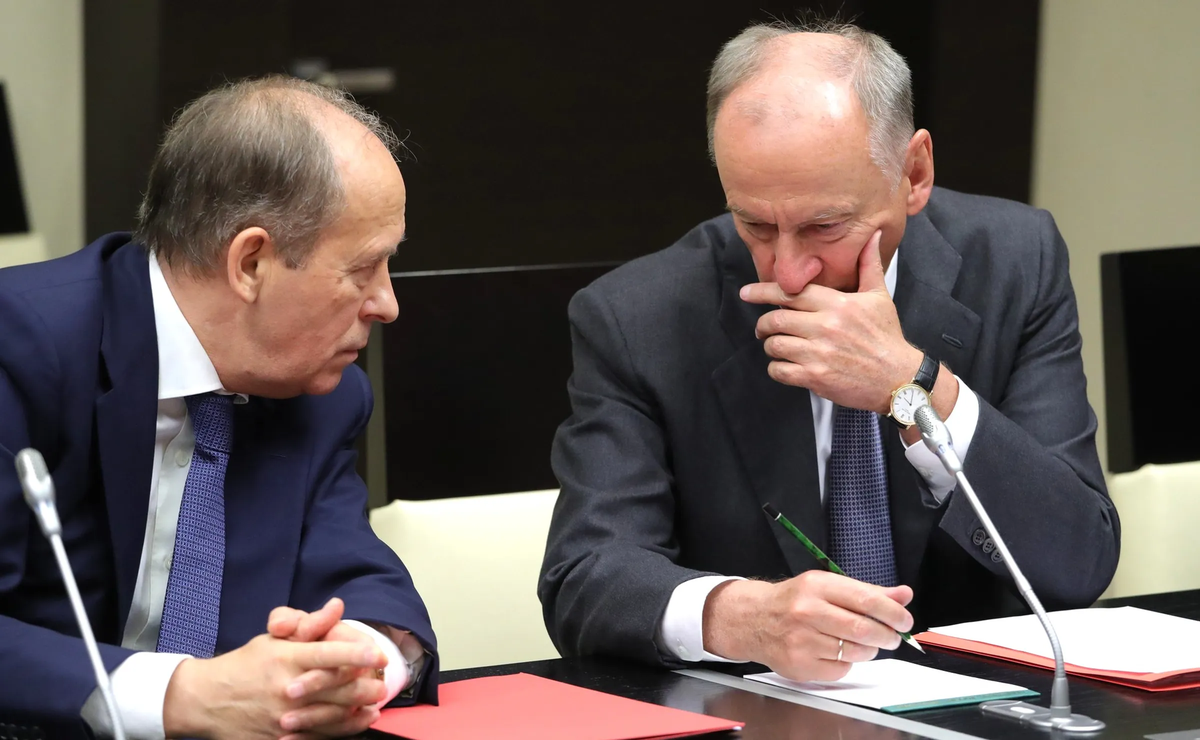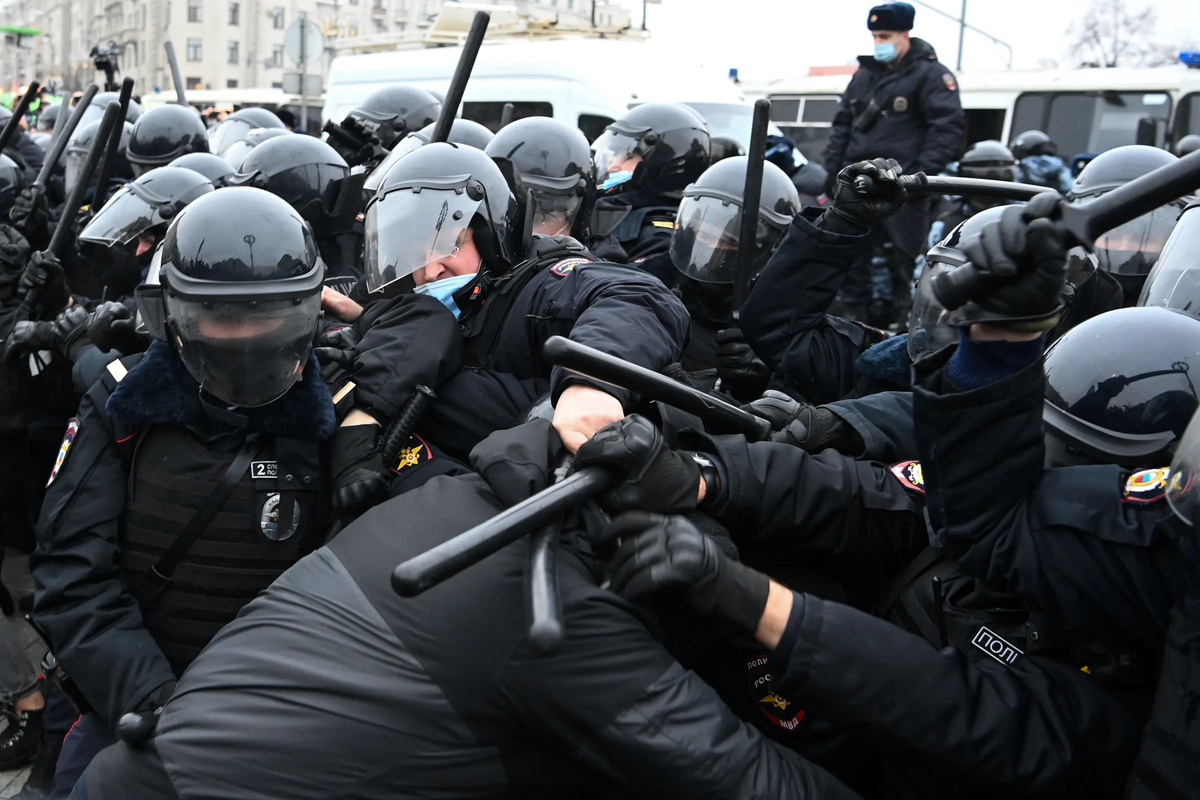What Is Inside Vladimir Putin’s Head?
An attempt to psychoanalyze Russian authorities by Important Stories’ editor-in-chief Roman Anin

What is going on in Vladimir Putin’s head, and for what values are Russians dying in Ukraine? It would seem that these are completely different questions, but if we try to answer them, we will realize that, in fact, they are about the same thing.
The war in Ukraine is not only a confrontation between two armies, but also between two ideologies. If we ask Ukrainians on the front lines what they give their lives for, most of them will answer without hesitation: for freedom. Today, this is their basic and existential value: it is not something that has been handed down from above by the authorities or propaganda, there is nothing abstract about it, its necessity has been realized by the people themselves — it is their land that has been seized, it is their cities that are being wiped off the face of the earth by Russian tanks and missiles, it is they who are being tortured for speaking their native language.
If we were to ask Russians the same question — why are they dying in Ukraine? — then, hand on heart, many would probably say that they went to war to make money. But even those who joined the Russian army for ideological reasons — and there are many of them — would hardly be able to unanimously list the specific values for which they are fighting.
Unlike the Ukrainian ideology of freedom, the ideology of the Russian world is extremely abstract. And there is a simple explanation for this: it is built on an illusion, on a myth that has nothing to do with reality.
This myth originated in the heads of elderly KGB officers who have been ruling Russia for 25 years. Let’s analyze it carefully and try to understand what it can tell us about Putin’s worldview and his attitude to reality? Let’s try to psychoanalyze the Russian authorities.
The ideology of the “Russian world”
Putin formulated the final principles of the ideology of the “Russian world” last November at the session of the World Russian People’s Council.
First, this ideology is based on the image of the enemy — the collective West: “The West does not need such a large and multinational country as Russia. <...> Our diversity and unity of cultures, traditions, languages, ethnicities simply do not fit into the logic of Western racists and colonizers, into their cruel scheme of total depersonalization, disunity, suppression and exploitation.”
Second, the concept of the Russian world is based on the idea of the exceptionalism and messianism of the Russian people, who for centuries have been opposing the corrupt West and defending their more spiritual and just values: “It is our country, the Russian world, as it has happened many times in history, that has blocked the way of those who claim world domination. <...> We are fighting now for the freedom not only of Russia, but of the whole world. <...> Russian is more than a nationality!”
The third distinctive feature of the ideology of the Russian world is its invasive character: it does not recognize state borders and denies national identity to other peoples. Both Putin and Patriarch Kirill have repeatedly asserted that Ukrainians and Belarusians are not separate ethnic groups, but parts of the “common Russian people.” Therefore, according to their logic, Russia has the right to "protect" the Russian-speaking population and annex the territories where they live.
Let us leave aside the ethical questions to these principles and ask only logical ones:
- why is the Russian world more spiritual than the West, if in reality Russia is one of the world leaders in the number of alcohol-related deaths, suicides and new HIV infections?
- why does the Russian army demolish Russian-speaking cities — Mariupol, Kharkov, Odessa, Kherson — if they are inhabited by those whom it supposedly came to protect?
- Why is it that in the “just” Russian world, Ramzan Kadyrov’s 15-year-old son beats up a defenceless Russian in front of everyone’s eyes, brags about it in public, and receives a carload of state awards, while Sasha Skochilenko, an artist from St. Petersburg, is imprisoned for seven years for putting up peaceful stickers in a store?
On the one hand, these contradictions are so obvious that it seems incredible how tens of thousands of Russians could die in Ukraine for an idea that, in terms of its reasoning, is not much different from the delusions of a patient suffering from a delusional disorder.
On the other hand, it is not surprising that this ideology has become the state ideology: Putin’s myth of the Russian world is, in fact, a mystical version of the ideology of Chekism, a system of views and beliefs of a narrow group of KGB officers who hold power in Russia.
The ideology of Chekism
Russia is ruled by elderly Soviet Chekists — Putin, Patrushev, Bortnikov and many other of their former colleagues. To understand their worldview, one needs to know the value environment in which they grew up and how it influenced them psychologically.

Hostility
Putin and his entourage have been brought up in the traditions of one of the most brutal and inhumane security services in the history of the 20th century, which killed and sent millions of its own citizens to camps. Moreover, the Chekists in power are not ashamed of these “achievements” and even find justifications for them, just as they justify today’s repressions: enemies and conspiracy all around.
Their view of the world is deeply distorted by what psychology calls hostile attribution bias. This is the human tendency to see almost any action or intention of other people (or countries) as having a hostile intent. This cognitive distortion often leads to misinterpretation of reality, conflict, and aggression.
Resentment
The Chekist career of Russia’s current leaders came during the KGB renaissance, when the committee was headed by their idol and celestial Yuri Andropov. It was he who created the KGB’s Fifth Directorate to combat “ideological subversion of the West” — that is, foreign agents, in modern terms. Under him, punitive psychiatry against dissidents flourished, which his loyal successors have also revived in modern Russia.
Chekists have always had two enemies — the West and dissidents. And while they were good at fighting the defenseless citizens of their own country, they were not so good at fighting the West: the Soviet Union lost the Cold War and collapsed. This defeat developed in Andropov’s Chekists a sentiment of resentment, humiliation, and a thirst for revenge against their enemy.
Machiavellianism
In the post-Soviet period, in the very “dashing 90s,” they “enriched” their Chekist mentality with a criminal one. During those years, Putin served as vice-mayor of St. Petersburg and was responsible for privatization of state-owned enterprises, casino regulation, and foreign investment. With his help, key assets in the city — the port, oil terminal, hotels, gas stations, gambling establishments - came under the control of violent criminal groups. Moreover, Putin and other Chekists did not just help the leaders of organized crime groups, who were responsible for robberies and murders; they became their full-fledged business partners.
In 1999, Putin organized perhaps the most successful special operation of his Chekist career. He personally led a provocation against “a man who resembled Prosecutor General Skuratov,” who was caught on hidden video cameras in an apartment with sex workers.
At the time, the Prosecutor General’s Office was investigating the Swiss company Mabetex. The firm was engaged in the reconstruction of the Kremlin and, according to European law enforcement agencies, paid bribes to the entourage and family of Boris Yeltsin, who at the time actually ruled the country while the president lay in a drunken stupor. Yeltsin’s family, frightened by the investigation, turned to the then director of the FSB for protection.
“Putin is personally involved in the illegal initiation of a case against me. It was his people who fabricated the material, who brought <...> the Moscow prosecutor who opened the case at night in the Kremlin,” was how Skuratov described Putin’s role in his dismissal in 2000.
In gratitude for saving him from prosecution, the Yeltsin family appointed Putin as his successor.
With power in their hands, the Chekists began to rule Russia according to the precepts of the organizations that had shaped their mentality — the KGB and the organized crime groups. They began to take away strategic enterprises (NTV, Yukos, etc.) by raiding, intimidating dissenters, repressing dissenters, poisoning political opponents, and organizing special operations against neighboring countries.
They also adhered to the same precepts in the selection of personnel: the key government positions were appointed first of all to loyal or compromised candidates whom they had full control over. In fact, they did not choose professionals, but recruited agents, as they had been taught. The result of such a long-term “personnel policy” was negative selection: only associates of the Chekists remained in power — those who matched them in terms of incompetence.
The most appropriate term to describe such methods of governing the country is Machiavellianism. This is a state policy based on cynicism, the cult of brute force, the desire to use others for their own ends, disregard for the norms of morality and the belief that the end justifies any means.
Narcissism
Long years of unlimited power and permissiveness, multiplied by the efforts of their own propaganda, which for almost three decades has been creating a cult of personality of the leader (he flies a bomber, leads Siberian cranes, and threatens the “Anglo-Saxons” with a bare torso on horseback) have led Putin and his entourage to believe in their own exceptionalism, that they are the salvation of Russia, its new nobility, sent to the country by God himself. The Chekists fancied themselves Ivan the Terrible, Peter the Great and Catherine the Great.
This extreme form of narcissism is especially dangerous if a state leader suffers from it: he overestimates his own abilities, does not accept criticism, ignores advice and warnings and, as a result, makes rash and risky decisions. For example, the invasion of Ukraine.
Psychopathy
Machiavellianism and narcissism, characteristic of the Chekists’ worldview, are part of the "dark triad" of personality, which is what modern psychology calls a combination of negative traits whose possessors pose a danger to others.
The third pillar in this triad is psychopathy. It manifests itself in cruelty, tendency to violence, inability to empathize with other people’s grief, deceitfulness and hypocrisy.
After two years of war with Ukraine, one can say without hesitation: Russia is ruled by real psychopaths. They give orders to demolish cities along with civilians, defiantly reward those who have committed heinous war crimes and thus encourage this practice, and threaten to nuke the planet.
Sadism
In recent years, some psychologists have suggested expanding the “dark triad” to a tetrad and adding another trait to Machiavellianism, narcissism and psychopathy — sadism, that is, a passion for torture, the thrill of watching other people’s suffering and pain.
Looking at the pleasure with which Yevgeny Prigozhin commented on the video of his fighter smashing a man’s head with a sledgehammer, I would say that sadism is another systemic “staple” of the ideology of the Russian world and Chekism.

Dullness
The worldview of Putin and other ruling Chekists in Russia has another characteristic feature — a caveman-like, if we are to judge by the standards of the 21st century, dullness. They believe in the most incredible conspiracy theories, occultism and secret rites.
For example, as if it were possible to organize “a session of connection to the subconscious mind of Secretary Madeleine Albright” and read their thoughts that the U.S. wants to take away Siberia and the Far East from Russia.
Putin believes that Western colonizers are exporting the genetic material of Russians to develop biological weapons. And apparently, to protect himself from attacks targeting his own biomaterial, he carries a special man with a shit suitcase everywhere he goes.
And to rejuvenate himself, Putin, together with military officer Sergei Shoigu, takes blood baths from the cut horns of Altai red deer.
Their views on history are full of not only conspiracy theories, but also monstrous — both in their ignorance and cynicism — misconceptions, such as that it was the Poles who provoked Hitler to start World War II.
The ideology of Russian world and Nazism
Putin’s attempts to justify Hitler are not accidental — the ideology of the Russian world is in many ways similar to that of Nazism:
- first, they are united by hostility towards other nations (“Anglo-Saxons” and Ukrainians, Jews and Gypsies);
- secondly, aggressive and invasive character, which in both cases became the cause of long and bloody wars;
- third, the idea of the exclusivity of their own nation;
- fourth, the almost sacral figure of the leader: “No Putin, no Russia”, “Hitler is Germany, Germany is Hitler.”
However, there is a significant difference between the two. The ideology of Nazism emerged 100 years ago, and it was based on near-scientific theories popular at the time. For example, the German Nazis were inspired by the ideas of negative eugenics — the doctrine of how to combat degeneration in the human gene pool — that were widespread in the West at the time, including the United States. In other words, the very idea of racial superiority did not seem as blatant in the early 20th century as it does today.
The ideology of the Russian world emerged in the XXI century in the times of Wikipedia and ChatGPT in a country with a high level of Internet penetration. Even allies of the Russian regime laugh at its absurdity, who, trying to wash its image, have to listen to half-hour lectures about the Rurikids and Pechenegs.
However, just a month ago, more than 16,000 Russians died for this delusion near Avdeevka, a suburb of Donetsk, equal in area to a bedroom neighborhood in Moscow, so that their spiritual leader could please the population of the country with a small victory before his fifth election.